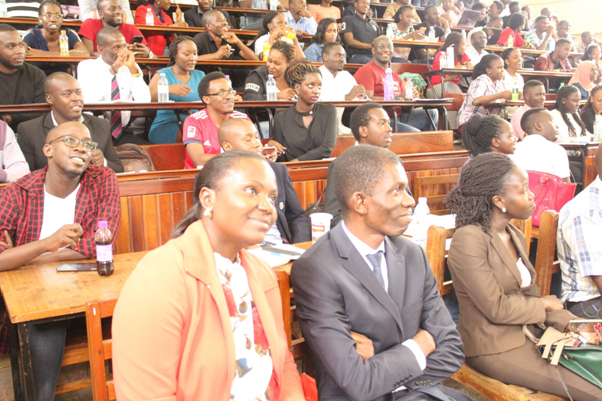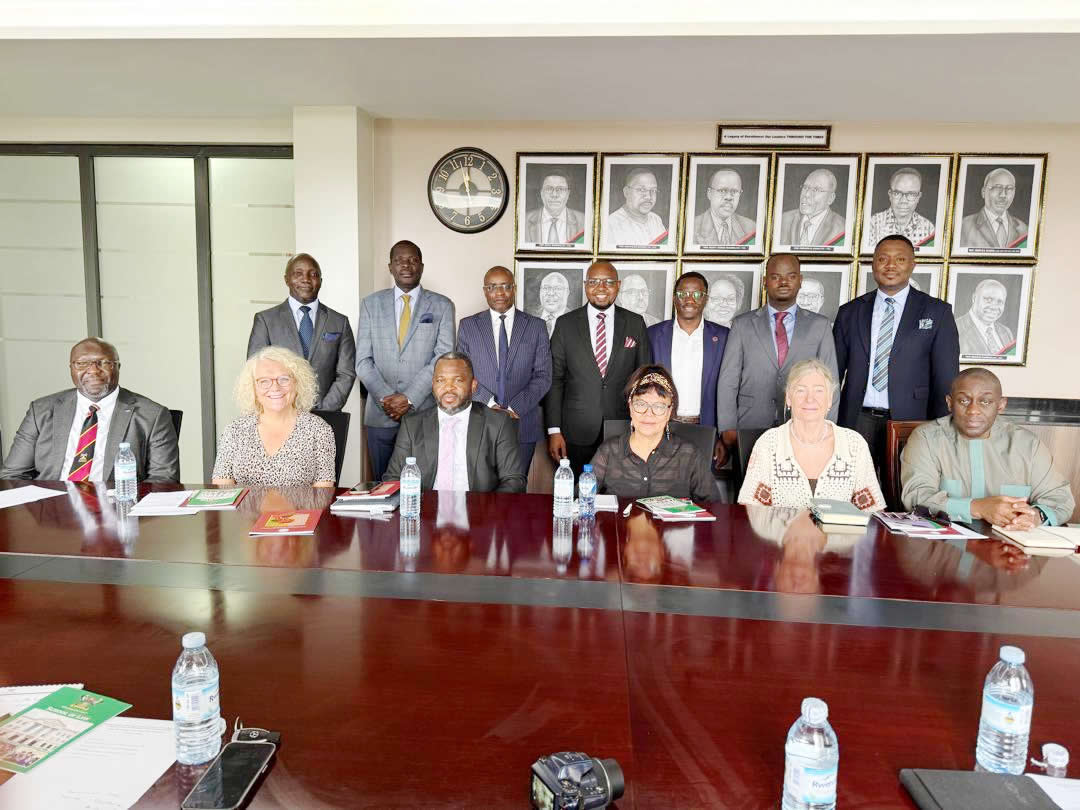Digital Money And Uganda’s Economy, Facts And Issues
This was the subject of discussion at the School of Law on Friday 28th February 2020, when a panel of experts led a discourse on the subject that is causing as much fear as excitement in all circles.
The Public Dialogue was convened by the Centre for Law and emerging Technologies, an intiative of the School of Law started off by Law teachers with a passion for mainstreaming Law with technology that include Mr. Robert Kirunda, Ms. Grancia Mugalula and Ms. Hadijah Namyalo.

During the forum, Hon. David Bahati the State Minister for Finance and Planning and Member of Parliament Ndorwa west made a presentation entitled, ‘The Digital economy and its implications for the present and the Future’. The paper delved into the legislative and regulatory processes that the ministry was employing to buttress the effects of the digitalisation of the economy.
He emphasized the need to differentiate between block chain technologies and ponzi schemes as some of the Fin techs spreading very fast which at times negatively affectsociety. He said it was the function of Government and his ministry to regulate technology adding that there was need to focus on the regulation of the services to ensure consumer protection, equity and fairness.

Hon Bahati explained that the government had established a task force to explore cryptocurrencies and their potential applications in Uganda. The task force would also understudy the global industry trends that could result in major effects in the developments of the country and region.
In the discussions, it was noted that in Uganda there were no laws around Digital money. ‘ Laws tend to take a prescriptive approach and by the time the legislationgets accented to by the President, the law is obsolete’ pointed out Ms. Gloria Matovu Kawooya, a legal associate with NMaks Advocates, one of the panelists.
Dr. Twinemanzi Tumubweine, the Executive Director in charge of Supervision Bank of Uganda pointed out that the rate at which changes were happening was causing more worry in the circles of the Bank of Uganda and that Government and other regulatory authorities were equally challenged.
‘Governments are challenged, they do not knowhow to regulate technology. Technology is good but has to be regulated and this ishow law comes in’ , he said. Dr. Twinemanzi while speaking about the way the bank was coping with the changes explained that Bank of Uganda tried as much as possible to remain open minded and accepted the fact that things could be done differently. He said there was a deliberate effort within the Bank of Uganda to come up with an internal strategy and policy and this had been made possible through benchmarking with other central banks with experiences citing China as one example that had made a headway in the use of digital money. He said the team that was constituted comprised of leading thinkers from the perspective of Law , technology and Governance.

In the discussions, participants raised a number of issues that included the concerns to whether the digital currencies were not going to increase the gap between the halves and the have nots.
While welcoming the participants in the dialogue to the School of Law, Dr. Christopher Mbazira noted that it was timely that the Law teaching institutions swung into action to address the apparent gaps in transactional law more especially in the face of the fast developing fintech.
‘We need to change the way we teach law, from the doctrinal theoretical methods to ways that prepare law graduates deal with disputes that happen and not what is yet to happen. You can never have lawyers dealing with emerging social, legal challenges with the current teaching methodologies, said Dr. Christopher Mbazira.
He observed that although there was a tendency for teachers to teach the way they were taught, the new trend was to experiment with the clinical methodologies. We must give back to society to overcome challenges, he emphasized, citing the Public Interest Law Clinic Model that had yielded positive results over a couple of years.
An historical account was given highlighting the growth of the money economy from the stone age to the current state, where money had been transformed in the digital world. It was indicated that all forms of financial transactions were dependent on common values and trust and that digital money was a form of representation of money citing the example of cryptocurrency and Mobile money where a person receives a mobile money message as though it were physical money. It was explained that money was evolving to match with the pace of trade and that for money to remain relevant, it had to catch up with digitalisation.
Mr. Robert Kirunda while speaking on behalf of the Centre for Law and Emerging Technologies, (CLET) noted that the initiative was in the formative stages adding that a Law School that did not embrace Technology was not worth the name.He commended the panel of experts for ably digesting the subject. The panelists included; Mr. Vincent Bagiire, Permanent Secretary Ministry of ICT and National Guidance, Dr. Twinemanzi Tumubweine, Executive Director Supervision, Bank of Uganda, Mr. Noah Baalessanyu, Director Strategy, Cryptocurrency and Ms. Gloria Matovu Kawooya, partner NMAKS Advocates and moderated by Kwame Rugunda.



